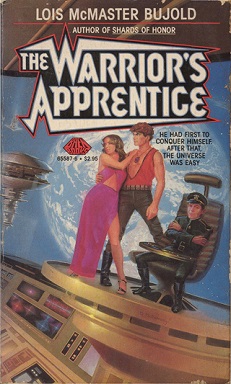So I’ve said before that I wasn’t sure if I was going to vote for the editor awards. I’ve ended up not doing so for a couple of reasons, mainly because I haven’t the faintest what makes for a good editor and I would mean largely voting by name recognition. Even with the stories/novels provided in the voters package it’s hard to say how much or how little the editor mattered for the success of them.
The Retro Hugos on the other hand I did vote in, though only in the fiction and artist categories.I know too little about the fan categories to make an educated choice there:
Best novel:
- The Sword in the Stone by T. H. White (Collins)
- The Legion of Time by Jack Williamson (Astounding Science-Fiction, July 1938)
- Galactic Patrol by E. E. Smith (Astounding Stories, February 1938)
- Carson of Venus by Edgar Rice Burroughs (Argosy, February 1938)
- Out of the Silent Planet by C. S. Lewis (The Bodley Head)
Best novella:
- “Who Goes There?” by Don A Stuart [John W. Campbell] (Astounding Science-Fiction, August 1938)
- “The Time Trap” by Henry Kuttner (Marvel Science Stories, November 1938)
- “A Matter of Form” by H. L. Gold (Astounding Science-Fiction, December 1938)
- “Sleepers of Mars” by John Beynon [John Wyndham] (Tales of Wonder, March 1938)
- No Award
Best novelette:
- “Werewoman” by C. L. Moore (Leaves #2, Winter 1938)
- “Pigeons From Hell” by Robert E. Howard (Weird Tales, May 1938)
- “Hollywood on the Moon” by Henry Kuttner (Thrilling Wonder Stories, April 1938)
- “Dead Knowledge” by Don A. Stuart [John W. Campbell] (Astounding Stories, January 1938)
- “Rule 18” by Clifford D. Simak (Astounding Science-Fiction, July 1938)
Best short story:
- “How We Went to Mars” by Arthur C. Clarke (Amateur Science Stories, March 1938)
- “Hyperpilosity” by L. Sprague de Camp (Astounding Science-Fiction, April 1938)
- “Hollerbochen’s Dilemma” by Ray Bradbury (Imagination!, January 1938)
- “The Faithful” by Lester del Rey (Astounding Science-Fiction, April 1938)
- “Helen O’Loy” by Lester del Rey (Astounding Science-Fiction, December 1938)
Ubermawkish, sexist “Helen O’Loy” better not win.
Best Professional Artist
- Virgil Finlay
- Alex Schomburg
- Frank R. Paul
- Margaret Brundage
- H. W. Wesso
Damn, there were some great artists doing sf and fantasy illustrion back then. Any of them is a worthy winner.
